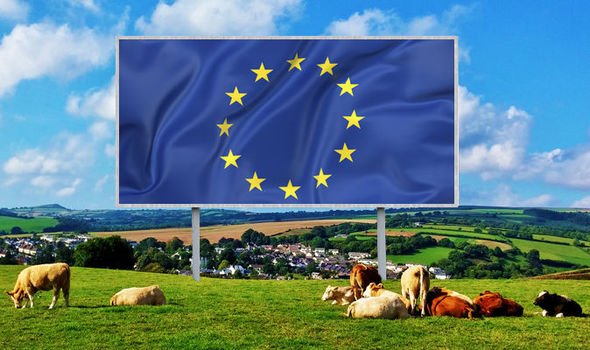The swift formation of the UK’s post-Brexit government removes one element of uncertainty. David Cameron has stepped away as Prime Minister, Theresa May has moved into 10 Downing Street, and a Cabinet has formed.
In what will be a complicated period, we’ve been spared the uncertainty of waiting for two months before the government begins the hard work ahead.
The big question is what comes next. How will the UK redefine its ties to the rest of Europe? What about the wider world? How will that affect UK farming when no longer part of the CAP?
As a farmer, my whole working life has been shaped by the EU, through the CAP and the open trade it allowed. I voted against Brexit last month. I was disappointed by the result with concerns for the next generation and our future relationship with Europe. At the same time, however, I fully accept the result and believe we should honor the will of the people who expressed their preference to leave the EU.
So now it is about getting on with it and I know that my farming will have to change. It may even lead to better farming as support systems and market access change. The UK farmers will have to become more market focused, looking out to a global market rather than within an EU system. This will be a real challenge to get fit quick or my farm may not survive the coming changes.
Our job as a nation now is to make the most of the situation. For farmers this means preserving and expanding our trade opportunities and also making progress on agricultural technology. We need to be globally competitive in meeting market demands. The choice of Andrea Leadsom as Secretary of State for Environment, Food, and Rural Affairs appears positive. Her background suggests wide business experience and she has an ambition to lead.
One of the government’s first requirements will be to rebuild its own infrastructure. Although the UK has managed its own foreign affairs during its membership in the EU, the decision to join the confederation in 1973 meant ceding the power to negotiate trade deals. Brussels has overseen this for us, along with many regulatory aspects. We’ll need to regain the expertise to carry this out for ourselves.
Once Article 50 is triggered, a huge amount of work will be required to ensure we can trade effectively with the EU as a first point. I am under no illusion how difficult this will be for both sides.
It will provide opportunities to look for new trading arrangements with the wider world and one idea already enjoying a fair amount of attention is the relationship with the United States.
One thing is clear: The UK and the United States are already important trading partners, exchanging more than $100 billion in goods last year. American companies employ more than 1 million British workers and British companies employ more than 1 million American workers, according to Fox Business.
Better trade ties will be an important aspect for the future but these are very early days. The new Prime Minister and Cabinet will need a period of time to address both Brexit and future trade with the wider world in a measured way.
On the technology front, I’m not sure whether the UK will become more accepting of GMOs and other novel breeding techniques. Among the European countries, we’ve always been the most open to innovation—but our ongoing ties to the EU will determine marketability. We will however look to lead in the science in a more open, positive, engaged way for research and development.
I can’t predict the post-Brexit future—and as much as I face it with deep concern, there is no other way of looking at this but as an exciting opportunity for change.



In india farmer marketing is also a big problem middle man eat all the profit and farmer didn’t get even his input money so In india last year near about more then 1.5 lakh family left agriculture sector . So if educated people come in this field and take marketing as a big and main tool to control then we have chance to improve our nation agriculture.
APMC act of 1962 is big hurdle for direct marketing by Farmers to consumers, E marketing is the new tool introduced
for Agri produce by present Government but few states under the pressure of Commission Agents still not introducing
by invoking fake deficiencies in the Marketing systems to cheat farmers at grass root level. In north India Punjab is the example for not introducing E marketing of Agricultural produce i.e vegetables, fruits, Timber and Animals.
pps pangli, president, Borlaug Farmers Association for South Asia.